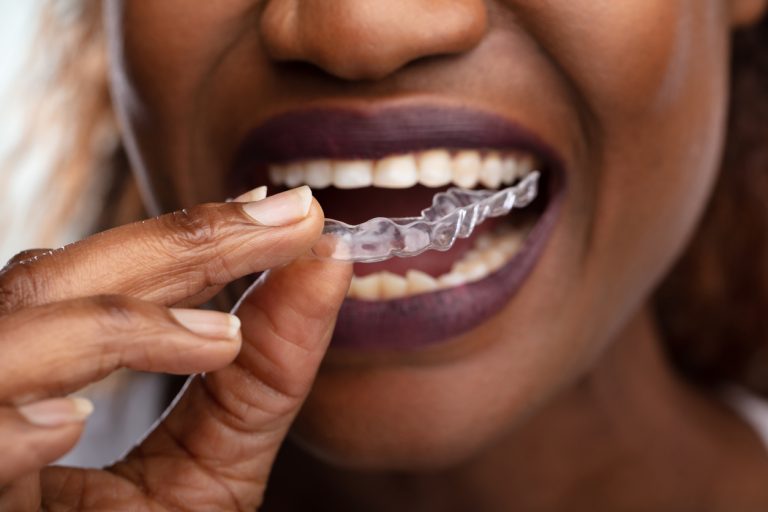Do you suffer from bruxism? This may seem like a scary word, but it is the scientific term for grinding your teeth. Studies indicate that stress, pain, and anxiety can lead to the grinding of the teeth. This happens more frequently than you might think, and usually during sleep. Discover why people tend to grind their teeth so much, and how you can find out if you grind our teeth at night. Our bruxism experts have many different treatments available for teeth grinding, which will also be discussed below.
Major Causes of Teeth Grinding
Waking up with a sore mouth or painful jaw is a huge indication that you grind your teeth while you sleep. But why do people grind their teeth? Why does this stress-induced habit manifest itself while you sleep, and what causes you to grind your teeth continuously in the first place?
Some of the leading causes of bruxism include:
- Sleep disorders (sleep apnea, insomnia)
- Stress
- Anxiety or depression
- Heavy consumption of alcohol
- Heavy consumption of caffeine
The Bruxism Association reports that bruxism rarely happens on its own, and it is commonly linked to sleep disorders like obstructive sleep apnea. It is important to visit your dentist and sleep specialist to determine the severity of your sleeping issues to find the proper treatment.
Symptoms of Teeth Grinding
Do you want to find out if you are someone who grinds their teeth a lot? It can be difficult to tell, especially if all the tooth grinding happens when you’re asleep. But if you start experiencing the following symptoms, you may want to visit our Glendora Family Dentistry specialists and get on a treatment plan:
- Heavy wear and tear on the teeth
- Headaches
- Inflammation of the gums
- Recession of the gums
- Loss of teeth
- TMJ discomfort (temporomandibular joint in the jaw)
- Facial myalgia
- Muscle aches
- General tension, discomfort, and pain
- Lack of mobility in the mouth or jaw (not being able to open your mouth all the way or chew hard foods)
There are also mental health symptoms associated with bruxism. While depression or anxiety can be the cause, they may also be a symptom or effect of the chronic pain that occurs as a result of heavy grinding.
Finding the Right Treatment Option
At Glendora Family Dentistry, we believe the best option to treat constant teeth grinding is to prescribe a night guard. A night guard is a piece of plastic that has been molded to the shape of your teeth. It is something you wear while you sleep, and it acts as a buffer between your top and bottom teeth.
The night guard reduces the tension and force caused by repeatedly gnashing your teeth together. Night guards are a cushion that keeps stress from damaging your teeth, jaw, and overall facial bone structure.
It is important that you get connected with our orthodontists right away if you feel this is a necessary option for you. In more severe cases, we may recommend a surgical intervention that can help relieve symptoms of bruxism and TMJ pain.
Bruxism and Sleep Disorders
If we determine that a sleep disorder causes your bruxism, additional treatment may be necessary. In this case, bruxism is a symptom of obstructive sleep apnea, and you may need to visit a specialist for the best sleep treatment. In more severe cases, you may need to invest in a C-PAP machine.
Put A Stop To Your Teeth Grinding Today!
The longer your bruxism goes untreated, the more damage you might do to your teeth and jaw. It is essential to reduce the amount of physical stress pushing down on your teeth at all times, as it can only exacerbate symptoms. For more information about how to get help for bruxism, get in touch with our specialists or give us a call at (626) 427-6236 to find out more.



